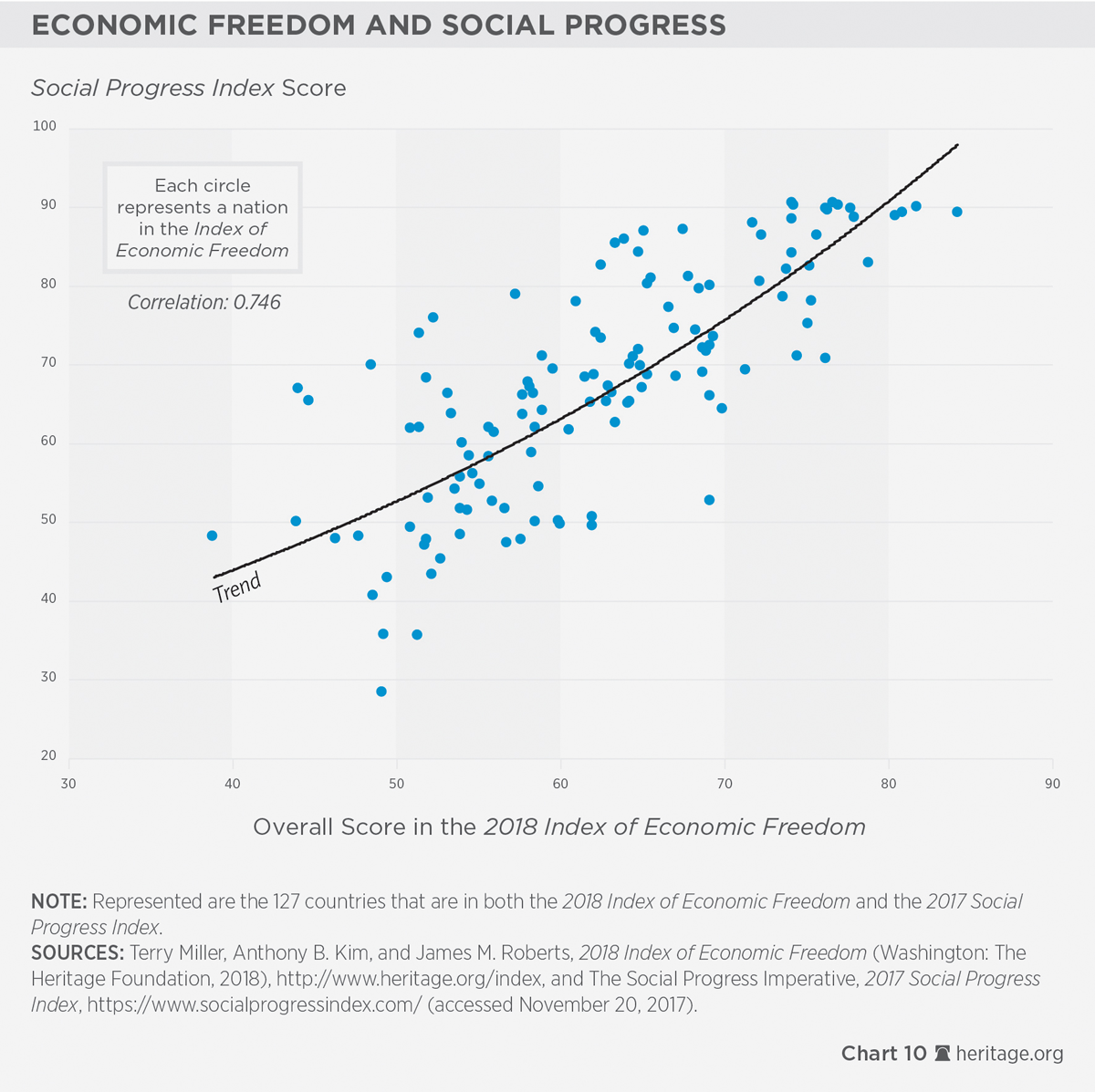In today’s complex global economy, it can be hard to get a sense of where we’re heading and how far we’ve actually come. While some boast of unprecedented economic prosperity and opportunity, others see social disruption or fear economic collapse.
But what is the true state of the global economy? More importantly, what’s needed to improve and sustain it?
 In a continued effort to discern such matters, The Heritage Foundation has once again released its annual Index of Economic Freedom, a report which ranks countries based on an in-depth evaluation across four key policy areas: rule of law, government size, regulatory efficiency, and open markets.
In a continued effort to discern such matters, The Heritage Foundation has once again released its annual Index of Economic Freedom, a report which ranks countries based on an in-depth evaluation across four key policy areas: rule of law, government size, regulatory efficiency, and open markets.
“The world economy is ‘moderately free,’ with another rise in economic liberty leading to a sixth annual global increase,” the editors conclude. “…Among the 180 countries ranked, scores improved for 102 countries and declined for 75. Only three remained unchanged.”
Although the United States still fails to rank in the top 10 — which is led by the likes of Hong Kong, Singapore, New Zealand, Switzerland, and Australia — the country has managed to halt and reverse its recent decline in the rankings, coming in at #18, just a half a point above last year’s ranking (which was the lowest in the study’s history).
Yet more intriguing than the individual rankings themselves are the conclusions from the report’s unique collection and convergence of data, which indicate broader implications for our economic thinking and policymaking. In particular, the study continues to provide empirical evidence that economic freedom is essential to the overall flourishing of a nation, whether one looks at standards of living, declines in poverty, environmental protection, social progress, or a range of other factors.
The authors summarize the policy implications as follows:
Countries that practice some variety of free-market capitalism and are open to global trade, investment, and financial markets do better economically than those that are protectionist or that shun linkages with others.
Countries that encourage and protect private ownership of property through honest and even-handed judicial systems encourage more entrepreneurial activity than do countries that require or practice collective or government ownership or control of economic resources.
Governments that impose heavy taxation or that incur excessive debt to fund high levels of government spending crowd out private economic activity and discourage job-creating investment.
A consistently applied regulatory scheme that encourages competition and dispersed decision-making, innovation, and economic efficiency promotes gains in productivity and better allocation of resources than are achieved by systems of central planning.
The findings about material wellbeing are striking, but the study also demonstrates that economic freedom isn’t just important for reducing unemployment or boosting a nation’s Gross Domestic Product.
Economic freedom cultivates something at a deeper social level, whether in fostering an environment of upward mobility, opportunity, and innovation, or in improving the ability of individuals, communities, and institutions to work together toward sustaining a healthy, peaceful society. Consider the following trends regarding economic freedom and social progress:
Economic freedom doesn’t just lead to strong economies, the report explains. It also leads to strong societies:
Economic freedom is critical to generating the broader-based economic growth that brings more opportunities for a greater number of people to work, produce more, and save for the future. Ensuring greater economic freedom is directly related to preserving and enhancing dynamic upward mobility.
Not surprisingly, societies based on economic freedom are the ones that have demonstrated the strongest social progress. Countries that embrace economic freedom more fully have provided the institutional environments that are most conducive to human development. Countries that have improved their competitiveness and opened their societies to new ideas have largely achieved at least a minimal level of the societal progress that their citizens demand.
It is not massive redistributions of wealth or government dictates on income levels that produce the most positive societal outcomes. Instead, mobility and progress require lower barriers to market entry, freedom to engage with the world, and less government intrusion.
Given the common complaints about capitalism, free trade, and free markets being the primary causes of social disruption and community disarray, it’s worth noting what true freedom actually fosters: more opportunity, mobility, and long-term stability for all, and at multiple levels of culture and society.
In turn, we realize that the path to human flourishing is not found in tweaking material allocation or economic distribution from the top down. Rather, we are reminded from where authentic and healthy economic and social progress actually comes.
“It is no coincidence that the explosion of economic liberty over the past decades has coincided with a massive worldwide reduction in poverty, disease, and hunger,” the report concludes. “The link between economic freedom and development is clear and strong: People in economically free societies live longer, have better health, are able to be better stewards of the environment, and push forward the frontiers of human achievement in science and technology through greater innovation.”
Download the full report.


